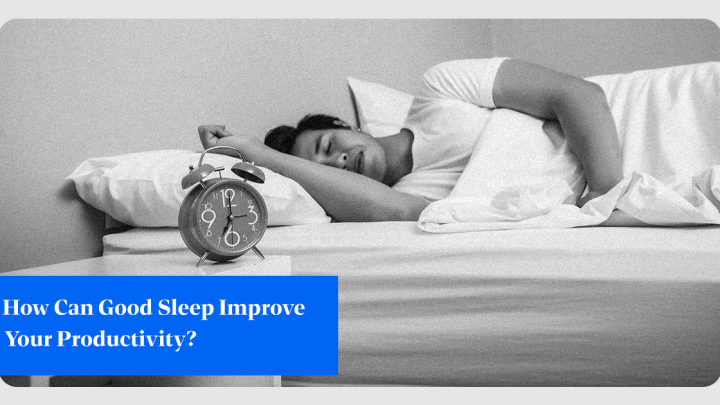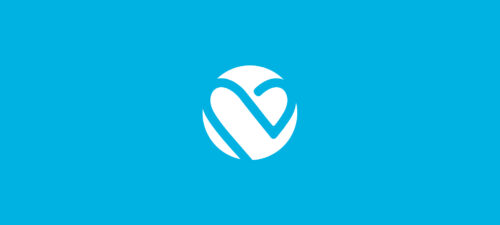How Can Good Sleep Improve Your Productivity?

Sometimes, the pace of modern life barely allows time to rest and relax, making it feel like getting a good night’s sleep regularly is just a dream. However, sleep is essential for good health, just as important as diet and exercise. Healthy sleep improves your health, mood, and cognitive performance, while insufficient quality sleep regularly increases the risk of various diseases and disorders, including heart disease, stroke, obesity, and dementia.
In this article, we will explore how quality sleep impacts employees’ performance.
When Is Sleep Healthy or Unhealthy?
Healthy sleep is essential for physical and mental wellbeing. The elements of healthy sleep include:
- Sleep Duration: The total number of hours of sleep you get within 24 hours. It is recommended that adults get 7 to 9 hours of sleep per night.
- Number of Awakenings: Fewer interruptions during sleep lead to more restful sleep.
- Time to Fall Asleep: The amount of time it takes to fall asleep after lying down and turning off the lights. This should take less than twenty minutes.
- Sleep Quality: The percentage of time spent sleeping compared to the time spent in bed. It is recommended that individuals spend more than 85% of their time in bed sleeping, as sleep efficiency leads to deeper, higher-quality sleep and increases the feeling of restfulness.
Nafas app helps you achieve better through a comprehensive library of meditation and relaxation stories. Check it out now!On the other hand, unhealthy sleep—also known as poor or disturbed sleep—is very common. One in three adults reported not getting enough sleep, and 65% of adults said that sleepiness negatively affected their ability to get things done 5-7 days a week. Additionally, 47% said that sleepiness negatively affected their work performance during the same period.
Excessive Changes in Sleep Patterns: This refers to fluctuations in a person’s daily schedule, including shifts in sleep and wake times as well as naps. These patterns naturally change throughout life, with deep sleep peaking early, declining during adolescence and adulthood, and possibly disappearing after the age of sixty.
Poor Sleep Quality: Sleep quality is defined as an individual’s satisfaction with their sleep experience, including sleep onset, maintenance, duration, and feeling refreshed upon waking.
Clinical Insomnia: This occurs when an individual has difficulty falling asleep (or staying asleep) despite having adequate opportunities for sleep. Clinical insomnia is diagnosed when a person experiences this difficulty at least three times a week, and the problem persists for at least three months, leading to feelings of weakness or distress during the day.
The Impact of Healthy Sleep on Employee Productivity
Getting a good night’s rest works wonders for the body, mind, and spirit, but it can also have profound benefits on employees’ overall wellbeing. For the body, getting enough sleep leads to a stronger, healthier immune system, increased energy levels, and heightened productivity.
For the mind, getting enough healthy sleep contributes to improved focus, increased engagement at work, and better information retention. Since sleep deprivation affects both short-term and long-term memory, making important and strategic decisions becomes more difficult when employees are functioning on minimal sleep.
Finally, deep sleep helps employees stay positive, enhances emotional stability, and reduces the likelihood of reacting negatively in the workplace—all essential elements for building and maintaining a culture of wellbeing within the organization.
How to Promote Healthy Sleep Mechanisms Among Employees?
Workplaces that prioritize flexibility and work-life balance are better positioned to encourage and sustain healthy sleep mechanisms among employees. It all starts with educating employees on how to allocate time for rest and integrating these initiatives into broader strategic health programs. Here are some examples of how to support the workforce in developing healthy sleep habits:
· Ongoing Awareness About the Importance of Sleep and Its Challenges
Seminars, awareness lectures, and newsletters provided by Labayh Business offer valuable information about sleep health to employees, explaining how poor sleep habits can impact sleep quality. They also provide helpful tips for establishing a regular sleep routine and regulating the body’s biological clock to improve sleep quality and enhance alertness during the day.
· Providing Access to Water and Healthy Meals in the Workplace
Diet and hydration play a crucial role in maintaining basic physical and cognitive functions, including sleep. Offering employees ample options to stay refreshed and hydrated is an important way to improve sleep quality, cognition, and mood.
· Ensuring Plenty of Natural Light in the Workplace
Light affects a person’s circadian rhythm as well as temperature and noise levels. Studies show that increased exposure to natural sunlight can significantly and positively impact sleep quality, psychological wellbeing, and cognitive functions for employees in offices.
· Disallowing Work Outside of Work Hours
Discouraging emails and video calls after work hours is a great way to promote a healthier sleep pattern, as it can directly help employees reduce stress levels in the evening, leading to better sleep and help them achieve work-life balance. Employers can also create motivational challenges that reward employees for not responding to emails after work.
· Flexible Work Schedules Allowing for Naps or Breaks and Promoting Balance
Flexible work schedules are an effective way to promote employee wellbeing and improve productivity by reducing stress levels, as they enable individuals to better manage their personal and professional responsibilities. Additionally, they help enhance alertness and reduce fatigue, leading to improved overall work performance.
Nafas App… Your Employees’ First Guide for Relaxation and Stress Reduction!
Labayh Business Helps Improve Employee Sleep
Employers who prioritize employee wellbeing and promote work-life balance create a more positive and healthy work environment, which can lead to increased job satisfaction, better employee retention rates, and enhanced productivity. This is where Labayh Business comes in with the Nafas app, the first Saudi app dedicated to achieving comprehensive wellbeing and skill development.
The app helps organizations and individuals embark on a meditation journey for a balanced life, providing a library of scientifically proven audio and video content across various fields of meditation. This helps you develop effective communication methods with employees, assist them in enhancing their mental health, promote healthy sleep, and create the ideal work environment that everyone would love to be a part of.
To achieve success, retain employees, and ensure optimal work performance, companies must prioritize employee wellbeing. That’s why the Nafas app is dedicated to providing the best advice in this field.
















